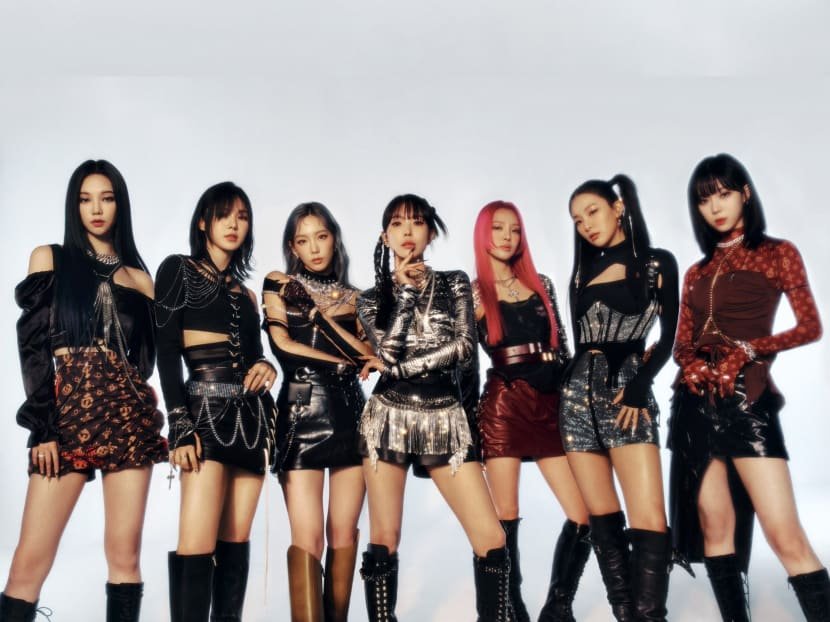Soft Power Will Define South Korea’s Modern Diplomacy
K-Pop girl group, Red Velvet, performs at a diplomatic event between South and North Korea. Source: CNA Lifestyle
Move aside sanctions and treaties. There’s a new diplomatic tool in South Korea – pop culture. Instead of traditional foreign policy mechanisms, South Korean diplomacy efforts focus on less direct but equally potent venues: K-pop, K-dramas, and K-beauty. Indeed, at a 2018 peace conference between North and South Korea, Red Velvet – a record-breaking girl group – performed hit singles “Red Flavor” and “Bad Boy” to North Korean diplomats and even Kim Jong Un. Despite the subtle jab by performing a song titled “Bad Boy”, Kim Jong Un lauded the singers and felt “deeply moved” by their performance. The utilization of K-Pop performers during diplomatic conferences is nothing new. The prior South Korean prime minister, Moon Jae-In, has invited performers to conferences with the United Nations, the United States, the United Arab Emirates, France, and China. Outside of music, the presence of Korean culture is undeniable: the K-beauty industry will be worth $13.9 billion in 2027, Korean dramas achieved a 123.4% viewership growth on Netflix, and the tourism industry grew 34% in 2018. The usage of pop culture as a means of diplomacy is not a new occurrence, but the massive popularity growth of South Korean culture is a never-before-seen phenomenon – one that will spearhead the nation’s foreign policy.
Historically, the export of Korean pop culture gained prominence through the late 20th century. In an event on Korean beauty with the UNC Asia Center, Professor Hye-Kyoung Kwon, a visiting lecturer in Korean Studies in the Department of Asian and Middle Eastern Studies, states that “K-Beauty is not just a trend, but a significant historical phenomenon.” “Upon delving deeper into Korea’s socioeconomic and political history, connections emerge between South Korean modernization and the US occupation, an emergent South Korean cosmetics industry, and the export-driven military dictatorship of 1961-79 led by Park Chung Hee,” explains Professor Kwon. However, the Hallyu – or the global “Korean wave” – started to gain exponential growth from the late 1990s to the early 2010s. After the fall of the Park dictatorship in 1979, private enterprise and innovation in the nation saw tremendous leaps. Investment into beauty skyrocketed while globalization allowed a western culture to permeate across the loosening borders. These multiple factors precipitated the development of a growing industry in entertainment and pop culture: K-Pop, K-dramas, and K-beauty.
The modern growth of Korean pop culture provides the nation with newfound diplomatic authority in the form of soft power. Created by famed political scientist Joseph Nye in the 1980s, soft power is the ability of one country to influence and persuade others without resorting to coercion, whether military or economic. Instead of forcing other nations to capitulate through threats of military attacks or economic sanctions, soft power seeks to mold diplomatic relationships by establishing shared values and cultural understanding. Mechanisms of soft power may include private companies, the arts, universities, religion, civil society, foundations, and culture. Nye predicted, in the 1980s, that “soft power” would eclipse the influence of “hard power” or traditional military and economic power. His hypothesis proved overwhelmingly true. Now more than ever in the age of mass media, soft power leads society forward -- spotlighting social issues, empowering the subjugated, liberating the silenced voices. Arts and entertainment are increasingly becoming a galvanizing force on the global stage. Soft power possesses a unique and compelling advantage over other diplomatic avenues: it appeals to the people, winning over their hearts with culture, entertainment, and shared values. Society likes entertainment, enjoyment, and laughter – and soft power acknowledges and utilizes this fundamental and universal fact to engender tangible political outcomes in a world of mass consumerism. Already, Korean soft power reverberates across the globe. For example, the nation currently is 11th on the 2021 Global Soft Power Index, jumping a whopping 14 spots and placing ahead of Turkey, Italy, and New Zealand.
However, many are concerned that the massive growth of the Hallyu contributes to the fetishism and stereotyping of Korean culture. Christin Kim, a student at UNC-Chapel Hill, describes “the growth of Korean culture sheds unprecedented awareness onto the country," yet she fears that “it leads to foreigners – especially white westerners coming from positions of privilege – to perceive South Korea as only a nation of K-pop and K-beauty. This disregards other cultural aspects, mostly aspects that are not influenced by western culture.” Another student, Ethan Yun fears that “the growth will make some people come to see Koreans as pure entertainers for westerners.”
As the Hallyu grows in popularity, South Korea must reckon with its consequences – both positive and negative. But one impact seems unstoppable: the growth of Korean soft power. In a globalized and digitized world where borders and oceans almost fail to exist, the rise of K-pop, K-beauty, and K-dramas will inevitably provide the South Korean government with immense power. But, with great power comes great responsibility. In South Korea’s case, over-wielding their newly gained foreign policy risks engendering a reductionist view of their culture, people, and nation.

